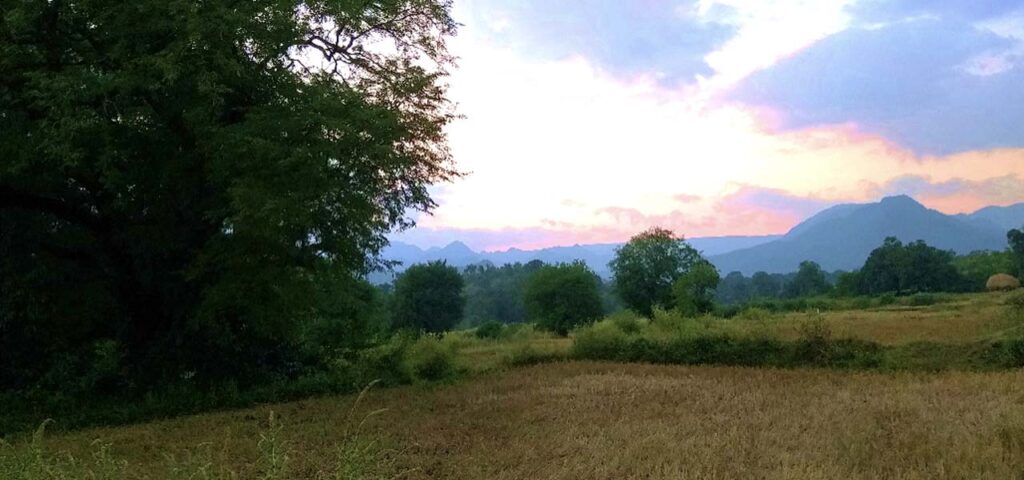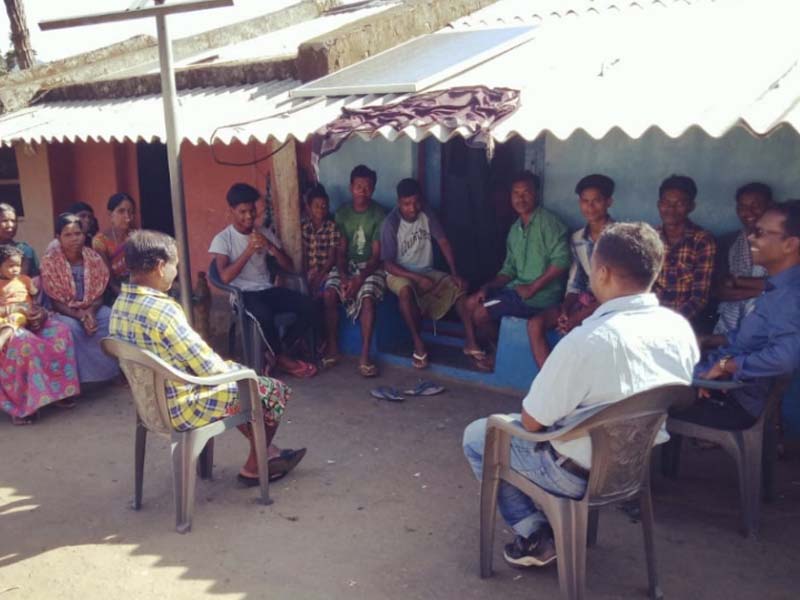Agro Enviro Initiatives
A comprehensive agro-green-enviro initaitve package for small and medium farmers from OSF. We invest to stimulate and adopt practices that lead to higher productivity in the field. The projects foster sustainable development as we focus also on preserving hill ecosystems, arresting deforestation and restoring degraded lands.
Program Components
Till-less Farming
OSF has a comprehensive multi-component project, known as Farming for the Future.
Part of this project focuses on activities that increase farmland productivity and create a soil-erosion free environment in the farm fields in the hilly areas. The normal practice is to overturn the entire field soil before a new crop. In slopped terrains, it leads to soil erosion. Besides, the practice reduces the load of symbiotic organisms and depletes the biomass content.
OSF suggests minimal or no tilling, but at the planting stations. This is to preserve symbiotic organisms and stabilize the biomass content of the soil. Heavy mulching is also done to retain moisture, preserve top soil depletion and as a weed-arrestor.

Green Cover Drive
The tribal farmers of Koraput uplands practice slash-burn-shift (podu) method of cultivation. In this, a forest area is identified, cleared and the residue of the felled trees and shrubs are burned. The ashes are spread to fertilize the land. Farming starts with the onset of monsoons in June. The cleared land is utilized for 3 years and then laid fallow for about 6-8 years for the green cover to partially regenerate. So, after 3 years they move to a new forest strip from where trees and shrubs are felled.

Due to population pressure, the cultivated area needs to increase, but the available forest land for the podu system is limited. Therefore, the fallow duration becomes shorter in the wake of which, the soil does not support higher productivity. Denuding the green cover and burning it in the cultivable area, eliminates the living microorganisms and productive organic matter.
Our Initiatives: OSF volunteers work to halt the depletion of forest cover in areas where the slash-burn cultivation is practiced. It is done with complete sensitivity that this is a traditional practice. What we observed is that the farmers were majorly dependent on the natural soil nutrients alone, the effect of which gradually weakened by the 2nd and 3rd year of cultivation.
On this critical issue, our volunteers conduct sensitization workshops with farmers in different blocks of Koraput district in Odisha. There were positive outcomes and many agreeing not to foray into new forest lands. They will continue to use the existing land strips by using bio-fertilizers, vermicomposting etc., to sustain productivity.

In the ongoing months and coming years, we hope to see a great turnround in this geography with the farmers themselves taking up the forest conservation theme to their peers in other villages.
Krishak Sahay Loans
Small farm loans for farmers to be self-sufficient in their farms.
We provide loans to construct vermicomposting tanks. Since there is no infusion of manure or fertilizer in the areas of Koraput that we focus on, there is dependency on nutrients in the soil which depletes over time. We support, encourage and train farmers to adopt bio-fertilizers, vermicompost / compost which can be locally prepared.
For irrigation purposes Loan for foot pumps in areas without electricity. This is to irrigate the fields by drawing water from streams or ponds located at a lower level than the fields.

